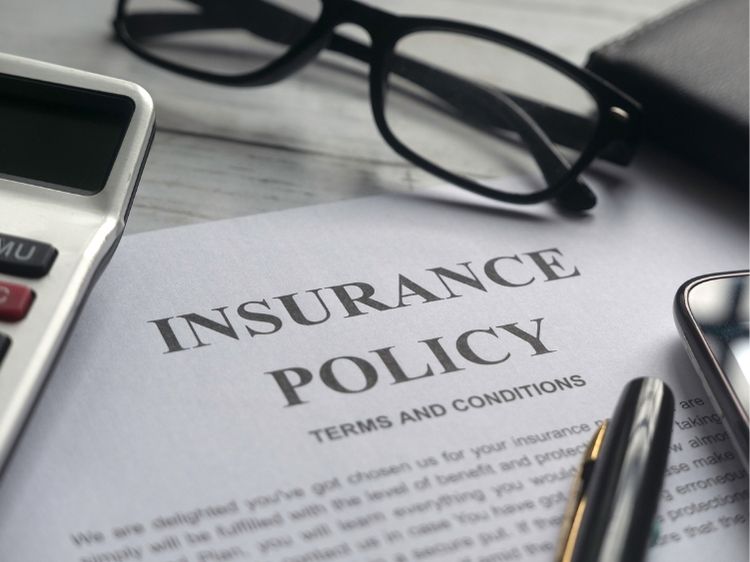When it comes to insuring your vehicle, getting the best car insurance quotes is crucial. Not only does it ensure you’re covered in the event of an accident, but it can also save you a significant amount of money. Whether you’re a first-time car owner or just looking to switch providers, this guide will help you navigate the process of securing affordable car insurance quotes. Let’s dive in!
What Are Car Insurance Quotes?
Car insurance quotes are estimates provided by insurance companies that detail how much you would need to pay for coverage. They vary based on a range of factors, including your driving record, location, type of vehicle, and even your credit score. By comparing quotes, you can find the best policy that fits both your needs and budget.
Why Compare Car Insurance Quotes?
You might wonder, why go through the hassle of comparing car insurance quotes? Here’s the deal: not all insurance policies are created equal. Two insurers might offer vastly different rates for the same coverage. By shopping around and comparing quotes, you can avoid overpaying for your policy and get better coverage for less. Plus, who doesn’t love saving a bit of cash, right?
How Are Car Insurance Quotes Calculated?
Before diving into how to get quotes, it’s important to understand how they’re calculated. Insurance companies consider several factors to determine your premium:
- Driving History: If you have a clean driving record, you’ll likely get a lower quote. However, accidents or traffic violations can raise your rates.
- Location: Where you live plays a big role in determining your premium. Urban areas with high traffic and crime rates tend to have higher premiums.
- Vehicle Type: The make, model, and year of your vehicle will affect your quote. Expensive or luxury cars typically cost more to insure.
- Coverage Type: The type of coverage you choose (liability, collision, comprehensive) will influence your quote.
- Credit Score: Believe it or not, your credit score can impact your insurance rates. A higher score often leads to lower premiums.
Steps to Get the Best Car Insurance Quotes
Now that you know what factors influence car insurance quotes, let’s look at how you can snag the best deal.
1. Shop Around
First things first: don’t settle for the first quote you receive. Reach out to multiple insurance companies to get a range of quotes. This will give you a clear picture of the market and help you make an informed decision.
2. Know Your Coverage Needs
Are you looking for basic liability coverage or something more comprehensive? Understand what kind of coverage you need before starting your search. This way, you won’t end up paying for unnecessary extras.
3. Bundle Policies
If you have homeowners or renters insurance, consider bundling it with your car insurance. Many companies offer discounts when you purchase multiple policies with them. It’s like killing two birds with one stone!
4. Look for Discounts
Insurance providers often offer various discounts, such as safe driver discounts, good student discounts, and even discounts for installing anti-theft devices in your car. Make sure to ask about all available discounts when getting quotes.
5. Raise Your Deductible
If you’re confident in your driving abilities and have a good emergency fund, consider raising your deductible. A higher deductible means lower monthly premiums, but you’ll pay more out-of-pocket in the event of an accident.
6. Check Customer Reviews
Price isn’t everything. Before finalizing your decision, read customer reviews and ratings for the insurance companies you’re considering. This will give you insights into their customer service, claims process, and overall reliability.
FAQs About Car Insurance Quotes
Q: How often should I compare car insurance quotes?
A: Ideally, you should compare quotes once a year or whenever there’s a major life change, such as moving, buying a new car, or adding a driver to your policy. This ensures you’re always getting the best deal possible.
Q: Can my car insurance rate change after I get a quote?
A: Yes, your final rate may differ from the initial quote based on additional information the insurer gathers, such as a deeper dive into your driving history or credit score.
Q: Is it cheaper to pay car insurance monthly or annually?
A: Paying annually is often cheaper. Many insurers offer a discount for paying in full upfront. Monthly payments may come with extra processing fees.
Q: Do I need to provide my Social Security number to get a car insurance quote?
A: Not always. Some companies may ask for it to check your credit score, but you can often get a quote without providing it.
Q: What’s the difference between liability and full coverage?
A: Liability coverage only covers damages to other vehicles or property if you’re at fault in an accident. Full coverage includes both liability and coverage for damages to your own car (collision and comprehensive).
Types of Car Insurance Coverage
When you’re reviewing quotes, you’ll encounter different types of coverage. Understanding each type can help you choose the best plan for your needs.
- Liability Coverage: This is the minimum coverage required by most states. It covers damages to other people and property if you’re at fault in an accident.
- Collision Coverage: This covers the cost of repairs to your car if you collide with another vehicle or object.
- Comprehensive Coverage: This covers non-collision-related damage, such as theft, vandalism, or weather damage.
- Uninsured/Underinsured Motorist Coverage: If you’re hit by someone without insurance (or with insufficient coverage), this policy covers the damages.
- Personal Injury Protection (PIP): PIP covers medical expenses for you and your passengers, regardless of who’s at fault in the accident.
The Importance of Understanding Car Insurance Terms
Navigating car insurance quotes can feel like you’re wading through a sea of jargon. Here are some key terms you should know to make the process smoother:
- Premium: The amount you pay for your insurance policy.
- Deductible: The amount you pay out of pocket before your insurance kicks in.
- Claim: A request made to your insurance company for payment after an accident or incident.
- Policyholder: The person who owns the insurance policy.
- Underwriting: The process by which an insurance company assesses your risk and determines your premium.
Wrapping It Up: Getting the Best Car Insurance Quotes
At the end of the day, getting the best car insurance quotes is all about being informed, comparing options, and understanding what you’re paying for. Don’t rush the process; take the time to shop around and ask questions. Remember, the cheapest option isn’t always the best. It’s about finding the right balance between coverage and affordability.
By following these tips, you’ll be on your way to securing a policy that protects you, your vehicle, and your wallet. Safe driving!
Authoritative Resources
For further reading and trustworthy insights on car insurance, check out these sources:



